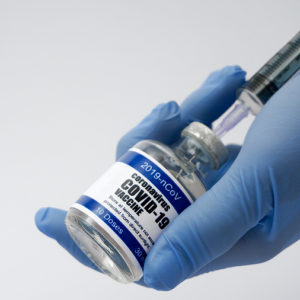In late February, the United Kingdom-based Bureau of Investigative Journalism reported Pfizer was accused of “bullying” Latin American countries and “holding them for ransom” during their negotiations to acquire its highly effective COVID-19 vaccine – with no deals being reached with Argentina and Brazil. Pfizer has, however, announced it has completed vaccine supply agreements with eight other Latin America countries, including Chile, Columbia, Costa Rica, Ecuador, Mexico, Panama, and Uruguay, with ongoing negotiations with several other Latin American and Caribbean countries (including an agreement reached with the Dominican Republic).
Yet it is the company’s legal negotiating position with Latin American nations that has placed Pfizer’s international corporate reputation in jeopardy. In the case of Argentina, Pfizer negotiators allegedly asked the government to indemnify the company against the costs of any future civil claims – including potential cases brought by victims as a result of Pfizer’s own acts of negligence, fraud, or malice. In addition, both Argentina and Brazil were asked by Pfizer negotiators to place sovereign assets as collateral. Pfizer’s demands went beyond those of other vaccine companies, as well as the COVAX alliance, a global initiative to pool vaccine purchasing power for low-income countries.
Because biopharmaceutical companies are being asked to develop vaccines rapidly to protect society from pandemics, governments usually agree to cover the cost of civil compensation. In these cases, a citizen would file a claim in court against a manufacturer and, if the claim was successfully adjudicated, the national government would pay the compensation. In other instances, there may be a non-judicial, institutional mechanism established by national governments for compensating victims. While indemnifying biopharmaceutical manufacturers, or exempting them from legal liability from an adverse event after vaccination is not unusual – and most governments offer such legal protection – this indemnification is not for fraud, gross negligence, mismanagement, or failure to abide by recognized industry manufacturing practices.
According to a Pfizer spokesperson, “Pfizer and BioNTech are firmly committed to working with governments to ensure equitable and affordable access to our COVID-19 vaccine for people around the world. In markets that do not have the legal or legislative protections that are available in the United States, we work with governments to find mutually agreeable solutions, including contractual indemnity clauses.”
An indicator of why Pfizer is demanding what would normally be unreasonable indemnity clauses may be found in the phrase “markets that do not have the legal or legislative protections that are available in the United States.” This identifies an important component of the company’s nonmarket strategy, which includes the legal and political environment that can negatively impact the firm’s market (economic or competitive) strategy. This Pfizer integrated firm strategy would include positioning the firm in its “legal space”, which affects not only the legal (and financial) liabilities the company is exposed to but also its market and nonmarket strategies.
Reportedly, Pfizer’s request for identification against any future civil claims required Argentina’s Congress to pass legislation allowing for this indemnification – which occurred in October 2020. However, Pfizer was not satisfied with the indemnification language in the new law, as it did not preclude any acts of malice or negligence on the part of Pfizer. Since the Argentinian government disagreed with Pfizer’s position, the company came back to negotiations in December with another request: that the government of Argentina place sovereign assets, including federal bank reserves, embassy buildings, or military bases, as collateral – which was summarily rejected as an “extreme demand.”
Pfizer’s corporate counsel advises its executive management (and board of directors) on legal risk analysis when engaging in contractual negotiations with private and public entities. In the case of Argentina and Brazil (and perhaps other countries), the indemnification offered by both countries was deemed insufficient to outweigh the company’s potential legal liability; hence, the demand for “sovereign assets” as collateral in lieu of indemnification beyond that of adverse events. Does Pfizer have the legal right to request this unusual indemnification from these Latin American countries? Of course, but without a convincing explanation of exactly why it was making these unusual demands (especially now that the content of the private negotiations are public), it has generated a corporate reputational quandary for Pfizer.
“At Pfizer we do the right thing because patients’ lives (emphasis added) depend on us. We act with integrity in everything we do, and our Values guide us in making the right decisions, ethically, thoughtfully, and responsibly so that our business can appropriately (emphasis added) meet patient and societal needs”, reads the Pfizer Blue Book Code of Conduct. When less developed countries in Latin America (and elsewhere) are desperate to negotiate for supplies of Covid-19 vaccine for their citizens, why is Pfizer requiring unreasonable indemnification clauses or sovereign assets as collateral? Does this conduct align with Pfizer’s Blue Book “Values”?

